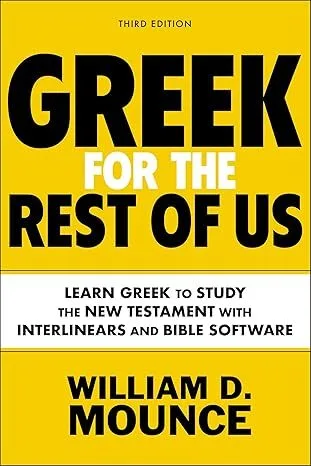Strong’s G4448: A verb meaning “to burn, set on fire, or be inflamed,” derived from πῦρ (fire). Used both literally and metaphorically in the New Testament to describe physical burning, spiritual testing, and intense emotions. Particularly significant in contexts of purification and trial.
U- Unveiling the Word

Key Information
πυρόω

Strong’s Entry
g4448
πυρόω represents a powerful concept of transformation through fire, encompassing both literal and metaphorical burning. In New Testament usage, it appears in contexts ranging from physical metallurgy to spiritual testing and intense emotional states. The word carries particular significance in passages about purification through trials and the refining of faith. Early church fathers extensively used this term to discuss spiritual transformation through testing and the purifying work of the Holy Spirit. Today, this word continues to speak to believers about the refining process of faith and the purifying nature of spiritual trials.
N – Necessary Information
- Greek Word: πυρόω, puroō, /pyˈroō/
- Pronunciation Guide: “poo-RO-oh” (stress on second syllable)
- Part of Speech: Verb
Etymology:
- Root: πυρ- (pur-) from πῦρ meaning “fire”
- Suffix: -όω (-oō) – verbal suffix indicating causation or bringing about a state
- Creates a verb meaning “to make fiery” or “to set on fire”
D – Defining Meanings
- To burn or set on fire
- To be inflamed (emotionally)
- To purify by fire
- To test by fire
- To refine through heat
Translation Options:
- To burn – Best for literal contexts
- To inflame – Captures emotional intensity
- To refine – Emphasizes purification aspect
E – Exploring Similar Words
- φλέγω (phlegō) /fleˈgō/ – to burn or kindle – See G5394
- καίω (kaiō) /ˈkaio/ – to light, set on fire – See G2545
- πυρπολέω (purpoleō) /pyrpoˈleō/ – to destroy by fire – See G4449
R – Reviewing the Word’s Morphology
Morphological Features (Verb):
- Tense: Present, Perfect, Aorist
- Voice: Active, Passive
- Mood: Indicative, Participle, Infinitive
- Person: First, Second, Third
- Number: Singular, Plural
- Aspect: Continuous (present), Complete (perfect)
Examples:
- Present Passive: πυροῦμαι (I am being burned/refined)
- Perfect Passive: πεπύρωμαι (I have been burned/refined)
- Participle: πυρούμενος (being burned/refined)
S – Studying Lexicon Insights
BDAG emphasizes both literal and metaphorical uses, particularly in contexts of testing. Thayer’s notes its use in metallurgical contexts. LSJ provides examples from technical literature about metal working. Vine’s highlights its metaphorical applications to spiritual testing. Strong’s connects it to purification processes. LEH traces its Septuagint usage in contexts of divine testing. Moulton and Milligan show its technical use in papyri relating to metalworking.
T – Tracing the Scriptures
First Appearance:
“But if they cannot exercise self-control, they should marry. For it is better to marry than to be [πυροῦσθαι] aflame with passion.” 1 Corinthians 7:9
Additional References:
2 Corinthians 11:29, Ephesians 6:16, 2 Peter 3:12, Revelation 1:15, Revelation 3:18
A – Analyzing Classical Usage
| Author: Work | Text |
|---|---|
| Aristotle: Meteorology | “The metal, when [πυρούμενον] heated in the fire, becomes purified” |
| Xenophon: Cyropaedia | “Their spirits were [πυρωθέντες] inflamed with the desire for battle” |
| Hippocrates: On Diseases | “The wound becomes [πυροῦται] inflamed and causes fever” |
N – Noteworthy Summary
πυρόω beautifully captures the transformative power of divine testing and purification. While it can describe intense trials, it proclaims the good news by showing that God uses these experiences to refine and strengthen our faith. Like gold purified in fire, believers emerge from trials more precious and valuable, transformed by the master craftsman’s careful work.
D – Did You Know?
- Ancient metalworkers used forms of πυρόω as technical terminology for specific heating processes.
- Early Christian martyrdom accounts often used this word to describe both physical and spiritual transformation through persecution.
- Medieval mystics frequently referenced πυρόω when describing intense spiritual experiences.
Strong’s G4448: A verb denoting both literal and metaphorical burning, particularly significant in contexts of purification and testing. Used technically for metalworking and metaphorically for spiritual transformation. Encompasses both the intensity of trials and the purposeful refinement they bring.
Part of speech: Verb
Tags: fire, burning, purification, testing, trials, refinement, passion, transformation, metalworking, spiritual growth, divine testing, persecution
Note: While this entry strives for accuracy, readers engaged in critical research should verify citations and keyword occurrences in their Bible translation of choice. For Biblical citations, the F.O.G Bible project recommends Logos Bible software.
Strong's g4448




